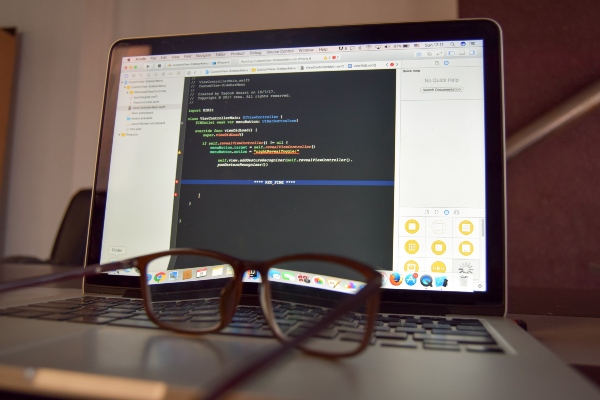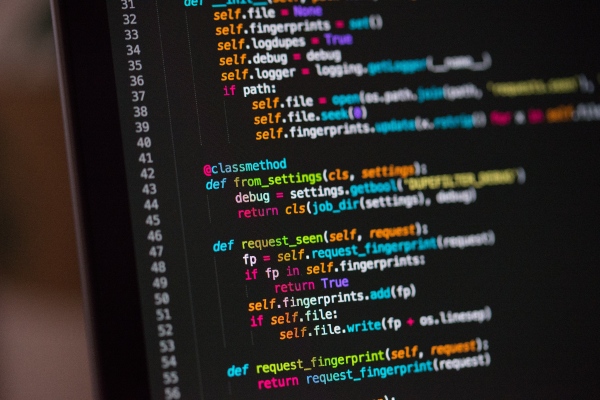C++ vs Python
C++ and Python are two of the most popular and commonly used programming languages out there. They’re both object-oriented, versatile and can be used to create a wide variety of different programs and functional code.


C++ and Python are two of the most popular and commonly used programming languages out there. They’re both object-oriented, versatile and can be used to create a wide variety of different programs and functional code.
However, choosing between Python or C++ is often a very difficult decision because both programming languages have very different syntaxes, uses and overall approaches to programming. Whilst C++ is considered the better choice for large system development, it’s also the hardest programming language of the two to learn and write which can limit who can use it.
If you’re an engineer or software developer wondering ‘Which programming language should I learn?’ you might end up deliberating between C++ or Python, trying to decide which is the most versatile programming language. In this article, we discuss the advantages and disadvantages of using C++ vs Python, along with highlighting the key differences between the two languages and explaining what situations or projects are best for using each of them.

The origins of C++ lie in the programming language known as C, which was developed in 1970. In the 1980s, Bell Labs member Bjarne Stroustrup started to develop an improved version of the C programming language that he first called ‘C with classes’, because it was an object-oriented language where the groups of data are referred to as ‘objects’ or ‘classes’. This later became the C++ that we use today.
Whilst C++ was also originally developed for coding operating systems, it is now a general-purpose, cross-platform language. It’s used for writing code in a huge variety of different contexts, supporting object-oriented, procedural and generic programming, and is so widely used it is often referred to as the ‘swiss pocket knife’ of coding languages.
On a technical level, C++ is a compiled programming language that lets the user organise data and code into a program that they can understand. The code is then translated by the coding platform or compiler into instructions that a computer can follow, which makes it a very fast and efficient language to run.
One of the main reasons why C++ is used as a programming language, and why many developers ask ‘Why is C++ better than Python?’, is because it allows users to reuse code instructions that they have already written, saving a lot of time having to write out identical functions. It also lets users combine data and instructions into ‘classes’ which can then be built out from one another to perform very complex functions that other coding languages can’t facilitate.
You can read our full guide on the advantages and disadvantages of C++ here.
The programming language known as Python was originally developed in 1991 by Dutch programmer Guido van Rossum. He started working on the language as a holiday project to begin with, building on the syntax of the ABC programming language but removing all of the drawbacks of this to create something new that provided good code readability and advanced developer productivity.
Python is also a cross-platform, object-oriented programming language that is high level, interactive and has dynamic semantics. Two of its most standout features are dynamic typing and dynamic binding, which make it a very popular choice for rapidly developing applications.
In its basic form, Python is used as a scripting and automation language. As well as being used for complex application development, it is also a language that is used to ‘glue’ existing components in a code or piece of software together. A stand-out feature is that the syntax is very easy to read, which makes it easy to learn and makes maintenance and debugging quite easy to do.
Is Python worth learning? Definitely. Python is one of the most versatile programming languages that is also relatively easy to learn and use without any other coding experience, which makes it one of the world’s most popular programming languages.

One of the basic, written differences between Python and C++ is that C++ needs curly brackets and semicolons to work, whereas Python works by the indentation of code to create the structure. Python also sees the end of a line as the end of a code statement, whereas in C++ a semicolon indicates this.
Another key difference in writing code in C++ or Python is that C++ is statically typed, whereas Python is a dynamically typed language. This means that whilst using Python you don’t have to indicate the type of the object which makes it much more versatile.
Something to consider in this programming languages comparison is that Python offers automatic memory management to its users, so you don’t have to handle the memory you use directly. C++ in comparison requires manual memory management, which can either be an advantage or disadvantage depending on what kind of program you are developing.
When it comes down to running the code you write with these two languages, Python runs through an interpreter line by line whereas C++ is pre-compiled. This means that C++ is much faster to run, which can be a key advantage over Python for many users.
Error handling in C++ is easier than it is in Python, as you have to declare the data type when you begin using it with C++. However, the code you write in Python is shorter and easier to maintain because you don’t have to declare its type at the start, which has its advantages.
In terms of usability, the differences are quite stark between the two programming languages. Python’s syntax is a lot closer to English and so it is easier to read and write, making it the simplest type of code to learn how to write and develop with. The readability of C++ code is weak in comparison and it is known as being a language that is a lot harder to get to grips with.
If you’re already familiar with C++ then you will probably find Python quite easy to learn as it is a lot simpler and requires less research and practice to use. In comparison, the jump from learning Python to learning C++ is quite significant, which is why most engineering and computing students are taught Python first.
When it comes down to it, choosing between Python or C++ will usually depend on what kind of software or program you are looking to develop. C++ is commonly used in embedded systems, 3D and visual design programs, game development and building operating systems or web browsers and portals. Python is a scripting language that is better being used in machine learning contexts, data analysis and backend web development.
If you need to rapidly prototype a program then you should use Python over C++, as the latter cannot be used for rapid prototyping because of the large size of its code. If you’re looking to develop software or code that runs particularly quickly however, use C++ over Python as the former is much faster no matter what you’re using it for.
When it comes to choosing a programming language, you should also use the one that is most suited to your level of expertise. If you’re just choosing which to learn, it is recommended that you start with Python before trying your hand at using C++, as it’s a much more beginner-friendly language that you can easily build on over time.
If you work or study in the software and programming industry then C++ and Python are two languages that you are likely to come across, often considered to be the best programming language for software development. Understanding the key differences between them and what kind of projects each is better suited to can be very useful when it comes down to choosing the right approach to new development or analysis tasks and deciding which will be the most beneficial to hone your skills in.
If you’re looking for a recruitment partner who knows the industry inside-out and can help find people with the skills and knowledge of programming languages like Python or C++, get in touch and find out more about how we can help.

 What is the Best C++ IDE?
What is the Best C++ IDE?